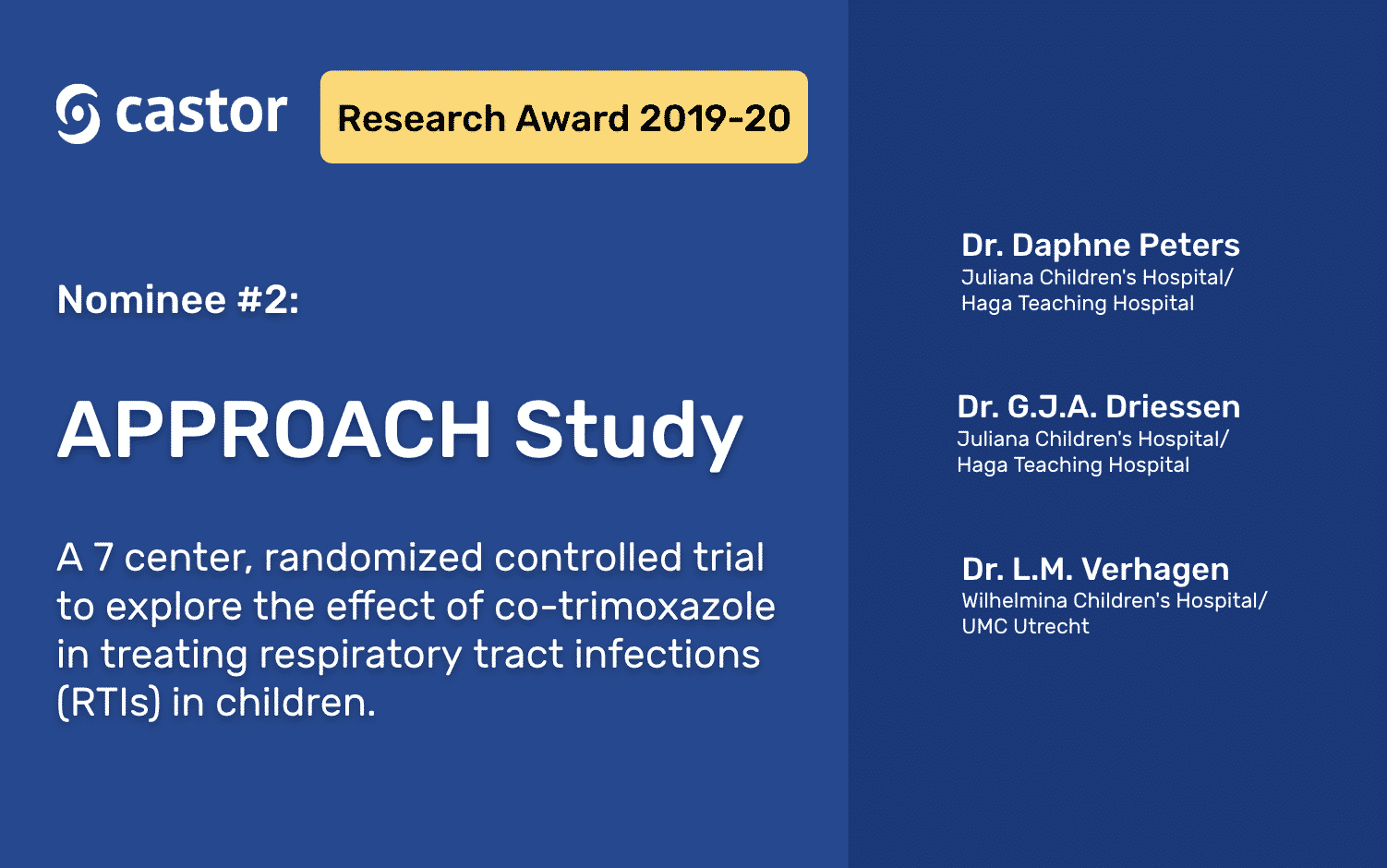Continuing the nominations for the 2019-20 Castor Research Award, here’s nominee #2. The APPROACH study is a multicenter, double-blind randomized controlled trial that aims to explore the effect of co-trimoxazole, an antibiotic used in treating respiratory tract infections (RTIs).

Research Overview
Recurrent respiratory tract infections (RTIs) affects 15-20% of children between the ages of 0 to 5. RTIs are one of the primary reasons for increased hospital visits and admissions. The antibiotic co-trimoxazole is commonly used as a prophylactic agent in children with recurrent RTIs. However, there are no evidence-based guidelines for its use except that it is prescribed for children suffering exclusively from otitis media. Hence, there is a pressing need for more evidence of the effect of co-trimoxazole prophylaxis in both clinical symptoms as well as microbiome deviation and antibiotic resistance. The APPROACH study aims to gather this evidence to inform the treatment of RTIs and thereby improve the treatment outcomes.
About the team
The APPROACH study has seven participating hospitals and is coordinated by Dr. Daphne Peters, a Ph.D. student at Juliana Children’s Hospital/Haga Teaching Hospital. The principal investigators are Dr. G.J.A. Driessen (Juliana Children’s Hospital / Haga Teaching Hospital) and Dr. L.M. Verhagen (Wilhelmina Children’s Hospital / UMC Utrecht).
Study design and methodology
The APPROACH study is a randomized double-blind placebo-controlled clinical trial comparing co-trimoxazole with placebo treatment given for three months in children with recurrent RTIs. A total of 158 children (aged 6 months – 5 years) with recurrent RTIs will be participating in the study at one of the seven hospitals.
Research outcome
The primary measurable outcome is the number of days with respiratory symptoms from baseline to three months after inclusion. The secondary measurable outcome is the number of days with respiratory symptoms from baseline to six months after inclusion, microbiome deviation, and antibiotic resistance of nasopharyngeal and gut bacteria.
How APPROACH uses Castor
The APPROACH study consists of seven participating hospitals in different locations. Being a multicenter study, the research team needed a secure method for sharing the CRFs and capturing data. Castor’s Form Builder helps them create well-designed electronic Case Report Forms (eCRFs). Using advanced user management, certain sections of the eCRFs created in Castor can be hidden for specific centers if required.
When there are seven hospitals in multiple locations participating in a study, mistakes and adverse events are bound to occur. Castor’s Monitoring feature supports the research team with granular audit logging that helps in spotting and reporting any errors, adverse events, and data discrepancies. Castor promptly notifies the coordinating researcher in real-time whenever an adverse event is reported, enabling quick reactions to potentially serious problems.
The research team was able to easily randomize the patients into either the placebo or antibiotic treatment arms. The ability to set up advanced calculations within Castor to accurately determine the dosage of the trial medication instantly established Castor EDC as a must-have tool for their research.
Stay tuned for more nominations for the 2019-20 Castor Research Award! We wish the nominees good luck and encourage all researchers to share their projects for the chance to win €3,000!
